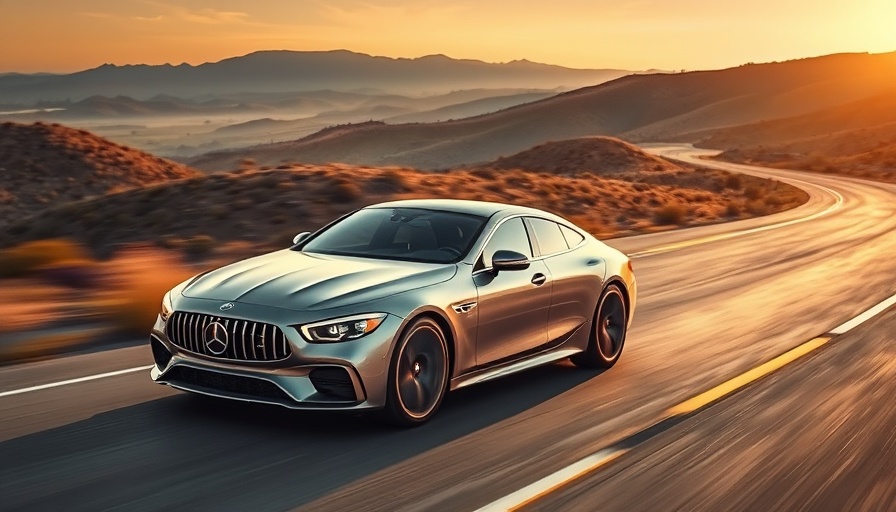
The Misconception of Luxury Cars and Wealth
Luxury cars have long represented wealth and success in American culture. Yet, despite rising consumer knowledge regarding financing options, the belief persists that owning a luxury vehicle equates to affluence. This myth is increasingly being challenged, revealing deeper layers of societal values and financial priorities.
Understanding the Appeal of Luxury Cars
For many, purchasing a luxury car is about more than just the vehicle itself; it reflects a lifestyle aspiration. Cars like BMWs and Teslas not only suggest prestige but also promise cutting-edge technology and performance. According to a recent survey, nearly 70% of respondents said they associate luxury cars with status—an attachment to lifestyle that transcends mere transportation.
Financing Makes Luxury Cars Accessible
What contributes to this perception? Nowadays, financing options make luxury cars far more accessible. Leasing and financing programs can allow almost anyone to drive a high-end vehicle, regardless of their actual financial status. As reportedly acknowledged in recent discussions, the ease of financing luxury vehicles has prompted serious reflection on the meaning and measurement of wealth in the modern context.
Challenges of Affordability and Ownership
However, while the allure of luxury cars draws many in, it's crucial to consider the financial implications. Ownership is not just about the upfront costs; it encompasses maintenance, insurance, and depreciation. In fact, studies indicate that many drivers routinely fail to account for these ongoing expenses when opting for a luxury vehicle, raising questions about long-term financial wisdom. This disconnect might lead to consumer debt which ultimately counters real wealth building efforts.
Redefining Wealth and Success in the Pursuit of Luxury
Moreover, the definition of wealth and success is shifting. Financial literacy plays a pivotal role in how individuals view investments and their expenditures. A rise in comprehensive wealth advising emphasizes the importance of understanding investments, growth strategies, and portfolio diversification instead of mere consumption of luxury goods. Today’s savvy consumer seeks financial independence over potential short-lived societal approval that luxury cars promise.
Invitation to Reassess Financial Values
As luxury cars remain intertwined with societal perceptions of wealth, it’s essential for consumers to reassess their financial priorities. Just because financing options exist doesn't mean taking on debt is beneficial. Rather, the focus should shift toward sustainable wealth management practices, which include investment strategies, risk management, and thoughtful spending.
Community Voices on Wealth Perspectives
This conversation about luxury cars reflects a broader dialogue on materialism and financial literacy within communities. For many, the idea of luxury challenges deeply-rooted beliefs about status and identity. As society navigates these beliefs, embracing both financial independence and community resilience becomes vital.
Conclusion: A Call to Action
In concluding, it's important to consider how the pursuit of luxury impacts financial planning and wealth preservation. Ask yourself: Are these symbols of success truly aligned with your financial goals? Embracing more comprehensive wealth management strategies leads to not only financial peace but a richer understanding of personal values and priorities.
Take the first step towards building your financial independence today by consulting with a financial advisor. A financial plan tailored to your specific goals can help you navigate the complexities of wealth management in this exciting but challenging landscape.
 Add Row
Add Row  Add
Add 




Write A Comment